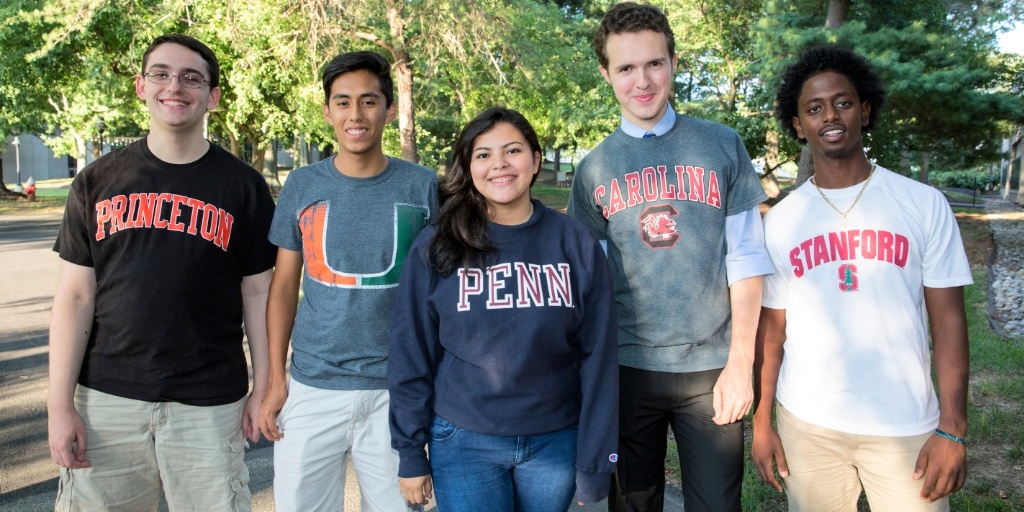Do Schools Prioritize Counselors and College Access?

This week, The 74 Million published a headline that gave many college access advocates pause for concern: “Data Shows 3 of the 5 Biggest School Districts Hire More Security Officers Than Counselors.” You can read the education news site’s full article here.
Matt Barnum is The 74 Million’s policy and research editor who authored the analysis. “I was interested in this because there has been a lot of discussion about school discipline and school-to-prison pipeline issues, but not many hard numbers on how districts are investing in both proactive and reactive strategies,” he informed the Cooke Foundation. “I think the data starkly highlights, at least by this one measure, different districts’ priorities.”
On the Charlie Rose Show, Dr. Nicole Hurd of College Advising Corps explains that in the U.S., “our counselor-student ratio is about 488:1, which means that the average student gets about 20 minutes a year with a counselor.” Low-income students may have even less face time with a knowledgeable adviser. A 2014 White House report states: “High schools serving predominately low-income and minority students have counselor to student ratios twice the national average –1,000 students per counselor versus 470 students per counselor nationally.”
“We’ve got a process that’s way too complicated in terms of financial aid and filling out applications and so we have this barrier” that is especially difficult for students who are first-generation or come from low-income families, Dr. Hurd expounds. Having guidance through these processes might make all the difference – College Advising Corps’ impact analysis shows that seniors who meet with its advisers are 30 percent more likely to apply to a college or university.
Even for high-achieving students, only 23 percent with financial need will apply to a selective school. However, when similarly talented students come from high-income families, that application rate more than doubles to 48 percent. This disparity is unfortunate at both the individual level – students could attend a better resourced school with higher graduation rates and future income potential – as well as at a national level, where economic competitiveness is at stake.
“People cannot be or want to be what they cannot see,” quipped Cooke Scholar Angel Sanchez in a recent interview. Our “True Merit” report explains one reason why talented students may not feel they “belong” at elite institutions; often, no one in their social network has ever attended one.
As an early lead funder of College Advising Corps, the Cooke Foundation is inspired by their work with dedicated staff in under-served high schools. Dr. Hurd emphasizes that by providing an adviser who can say, “’I look like you, I talk like you, I came from the same community and now I’m going to show you how you can get to the finish line too’ is just incredibly powerful.” As Dr. Hurd notes, there are four important words that every student needs to hear:
“I believe in you.”